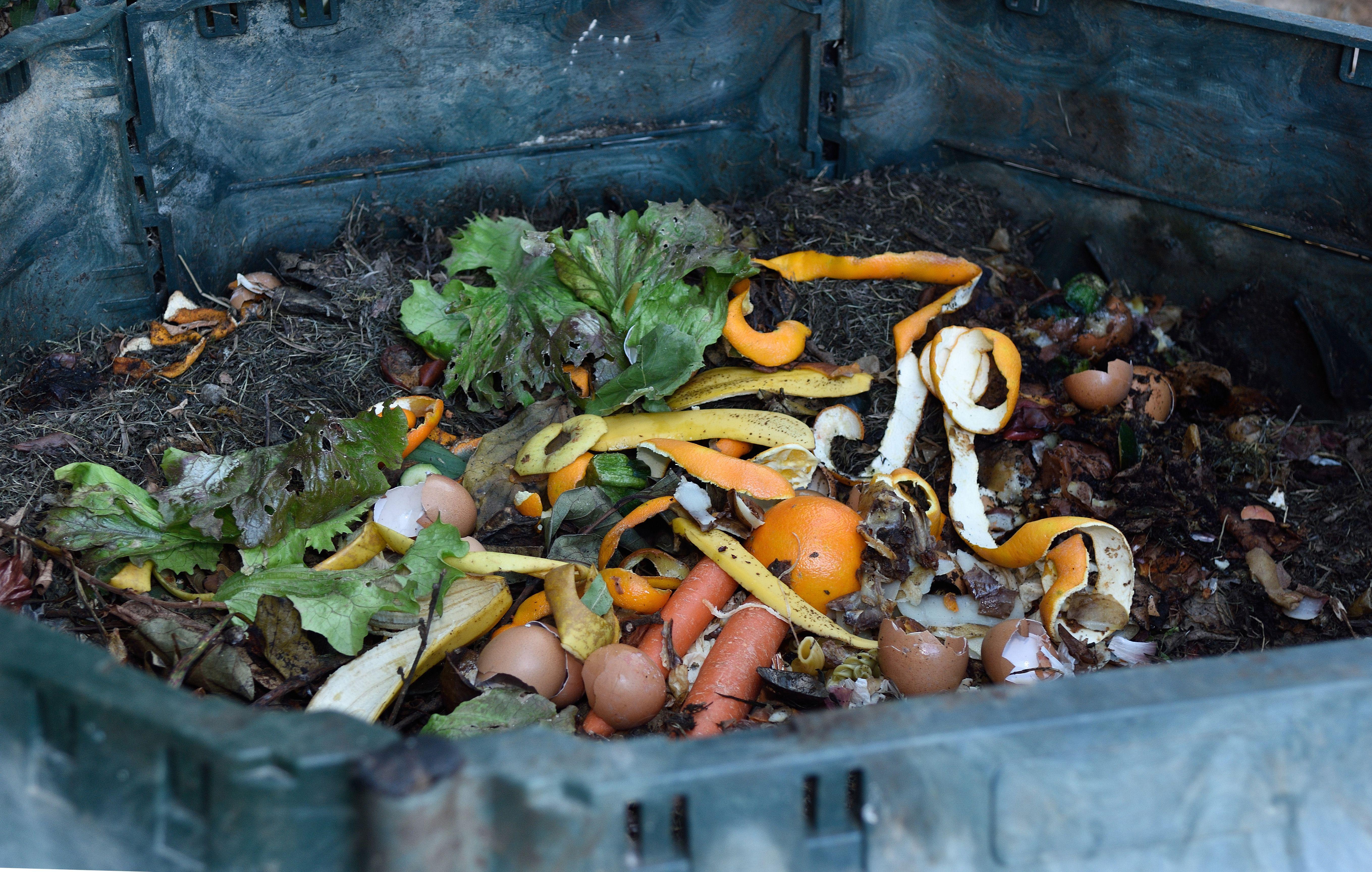Key Takeaways
- Compost piles that smell bad usually have poor airflow, excess moisture, or an imbalance of ingredients that needs to be corrected.
- Prevent unpleasant odors by regularly turning your compost pile and ensuring the right mix of carbon-rich “browns” and nitrogen-rich “greens.”
- Ensuring good drainage for your compost pile, covering it in rainy weather, and allowing excess moisture to dry from it helps restore a more pleasant, earthy scent.
Contrary to popular belief, compost piles aren’t supposed to smell bad, and a well-kept compost heap should smell just a little earthy. However, compost can start to smell like rotten eggs, ammonia, or worse if the composting process goes awry or the compost pile has become imbalanced in some way. Here are the most common reasons compost piles get stinky, and easy fixes that will make them smell much better.
Why Compost Piles Smell
The composting process depends on aerobic bacteria and other beneficial microbes that thrive in an oxygen-rich environment. When oxygen is reduced in compost piles, these “good guy” bacteria start to die, which can halt or disrupt the composting process. Some of the most common reasons why this occurs include:
- Poor air flow. Oxygen can be depleted in compost piles that are not aerated regularly or become waterlogged.
- Too much water. Too much water reduces the available oxygen and makes it harder for compost ingredients to break down the way they should.
- Wrong or imbalanced compost ingredients. Healthy compost piles are composed of a mixture of carbon and nitrogen-rich ingredients. However, compost piles can be smelly if they contain too many nitrogen-rich items, such as food scraps, or foods that rot quickly, such as meat and dairy.
How to Fix Smelly Compost Piles
Compost piles can get smelly at any time of the year, but they’re more likely to stink when the weather warms in spring and summer. Use the following strategies to help your compost pile smell better quickly, reducing the chances that it’ll attract unwanted attention from garden pests—or neighbors.
1. Aerate More
The most common reason compost piles start to smell is poor air flow and a lack of oxygen. This can be remedied by aerating compost piles regularly with a garden fork or shovel, or with the help of a compost tumbler. Exactly how often you need to aerate compost varies depending on your compost ingredients and the time of the year, but once every three or four days is recommended for hot compost piles.
2. Use More Brown Materials
Well-managed compost piles should contain about 3 parts carbon-rich ingredients for every 1 part nitrogen-rich items, such as kitchen scraps. If your pile contains too many kitchen scraps, compost can become soggy, which can lead to reduced airflow, slowed composting, and unpleasant smells. To avoid this, always add brown ingredients or “bulking materials” into your compost when you mix in kitchen scraps.
Examples of brown materials include:
- Shredded autumn leaves
- Shredded paper and cardboard (without colored inks)
- Weed-free straw
- Sawdust and woodchips
- Dried plant matter
- Twigs and sticks
- Compost that’s already finished maturing
3. Reduce Moisture
Adding large quantities of wet kitchen scraps is one reason compost gets soggy. Compost piles can also become water-laden and smelly if they’re left open to the elements or closed too tightly.
If you’re dealing with soggy compost in an enclosed bin or covered heap, remove the bin lid or covering on sunny days so some of that extra moisture can evaporate. For even better results, turn your compost while it’s uncovered. However, if the compost is soggy and open to the air, add a lid to the bin to keep the rain out, or install a tarp or other covering over your compost in wet weather.
4. Add an Accelerator
Compost starters and accelerators can be added to new or established compost piles to jumpstart composting and help compost break down faster and in a less-smelly way. Store-bought accelerators typically contain a mixture of beneficial microbes that speed up composting, but you can also use products you already have at home as compost accelerators, such as compost tea or bokashi tea harvested from bokashi composters.
5. Improve Drainage
Locating compost piles in a well-draining spot can help ensure compost doesn’t stay soggy for long. If your compost bin is in a location that doesn’t drain well and you can’t move it elsewhere, you may want to grade the soil around your compost bin or install a French drain or other drainage system. This directs water away from your composter and encourages piles to dry out faster.
6. Avoid Meat and Dairy
Some food scraps are more likely to get smelly than others, and that’s definitely true of meat and dairy. Most composting pros suggest not putting meat and dairy in composters due to their smelly nature and tendency to attract pests.
If you need to compost meat and dairy, choose a bokashi composting system, which is the only composter approved for these items.
7. Experiment with Odor-Absorbing Products
Biochar and zeolite are all-natural products that can be added to compost piles to absorb unpleasant smells, improve aeration, and help soggy piles dry out. Biochar is essentially a high-grade charcoal that can be made at home, while zeolite is a mined mineral that’s often sold at livestock feed stores or garden centers. These products are commonly used in gardens as soil conditioners, but they function like sponges in compost piles by absorbing excess water and smells.



